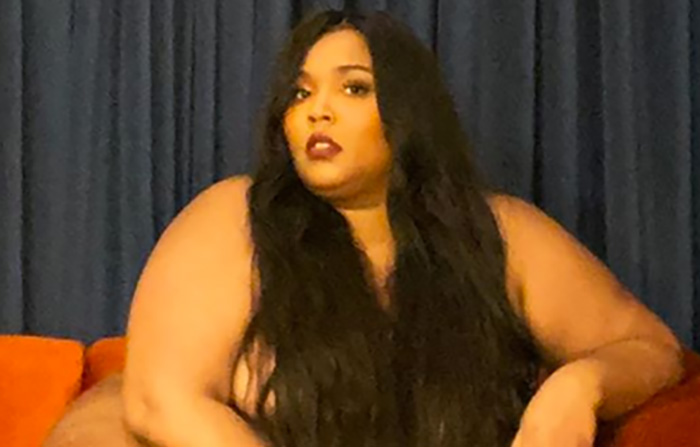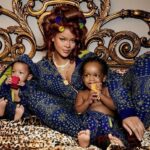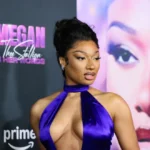By Dr. Boyce Watkins, Syracuse University – Scholarship in Action
I spent time watching a trailer for the film “Dark Girls,” directed by Bill Duke and D. Channsin Berry. Oddly enough, the clip was sent to me by a friend of mine who has spent her life being praised for being “light skinned-ed” and having the long, flowing hair of a black Marilyn Monroe. She eventually married a tall, dark man, leading me to wonder if she feels any guilt for receiving preferential treatment over something that should never have mattered at all.
Like most people reading this article, I grew up hearing jokes about darker-skinned African Americans. “Nappy” hair was an even greater curse. The further south you go, the more light skin carries a premium, to the point that it seems to matter more than anything else. The little light-skinned girl with long hair is (in the worst cases) the family princess, the smartest child in the group, the one who can do no wrong. Unfortunately, there are some light-skinned girls who hate the pedestal as much as everyone else, and grow up fearful of the resentment they might receive from those who feel that they’re receiving preferential treatment – my mother was one of those people.
As the father of three beautiful dark-skinned young women, the “Dark Girls” documentary definitely got my attention. The last thing I’d want is for any of my kids to feel that they are somehow less attractive because of their complexion. I am glad to say that not only do they seem clearly unaffected, but I’d argue that there is an entire generation that doesn’t put nearly as much of a premium on light skin as my generation or that of my parents. At the same time, there is progress to be made when it comes to educating ourselves and each other on the serious psychological damage caused by even simple remarks about skin color or hair texture.
When it comes to understanding black women’s hair, we’ve got a long way to go, especially black men. Film maker Janks Morton, while shooting at my house recently, told me the story of a 12-year old girl he saw at a swimming pool. The little girl sat for hours on the side of the pool, with her feet in the water. When she was asked why she wouldn’t jump in, she responded that she’d just gotten her hair done and didn’t want to mess it up.
We were both amazed at how this young woman’s ability to enjoy the swimming pool like the other kids had been ripped away because she felt compelled to maintain a Eurocentric standard of beauty. I never cease to be amazed at the trouble that many black women go through to maintain their perms: It’s expensive, time-consuming, stressful and ultimately unhealthy. I even had a friend with a health condition tell me that she was hesitant to start her exercise program because the sweat would ruin her perm – out of frustration, I then felt compelled to let her know that I’d be glad to pay to get her hair done for her funeral.
With that said, perhaps all of us should take a step back and think carefully about what it means to be beautiful. While progress is certainly being made against the backward nature of being color struck, further adjustment in our thinking might be necessary. At the very least, we can monitor our own language when making reference to those who possess a style of beauty that we might not necessarily understand. Jokes about dark skin or nappy hair need to go out the window, along with the ignorant thinking that accompanies them. Additionally, the standards of beauty communicated to our children must be carefully considered to ensure that we don’t lead our daughters to believe that they are nothing if they can’t afford to get their hair done.
Rather than simply focusing on being beautiful women, I’d rather my daughters learn the value of being beautiful people. But it’s also up to men to learn to appreciate multiple styles of beauty as well. Black women shouldn’t be killing themselves to impress us or trying to impress each other.
The trailer for “Dark Girls” is below:

![Da Brat Marries Judy Dupart on 2.22.22 [PHOTOS]](https://hiphopucit.com/wp-content/uploads/2022/02/1645669184565-440x264.jpeg)
![Drake Reveals Photos of His Son Adonis [Photos]](https://hiphopucit.com/wp-content/uploads/2020/03/Drake-and-on-Adonis-HHUCIT.jpg)

![Megan Thee Stallion – “BOA” [NEW VIDEO]](https://hiphopucit.com/wp-content/uploads/2024/05/Megan_Thee_Stallion___BOA__Official_Video__1_12_screenshot-440x264.jpg)
![Doechii Feat. JT – “Alter Ego” [NEW VIDEO]](https://hiphopucit.com/wp-content/uploads/2024/05/Screenshot-of-Doechii-and-JTs-Al-440x264.png)
![Young Thug Feat. Drake Drop – “Oh U Went” [NEW VIDEO]](https://hiphopucit.com/wp-content/uploads/2023/07/Young-Thug-and-Drake-1014x570-1-440x264.png)






